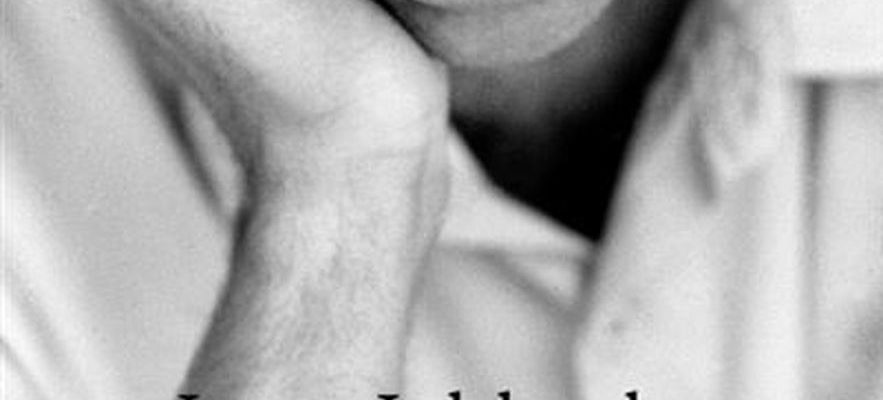In recent months, his children Caroline, a psychologist on a crusade against positive education, and Michael, director of the Star Academy, have stolen the show. But it is indeed Jean-Jacques Goldman who will be the big star of the literary season. With the breathtaking Goldmanto be published on August 18 by Editions du Seuil, the writer and historian Ivan Jablonka (Prix Médicis for Laëtitia or the end of men) succeeds in a total book on the Salinger of the French variety, this absent so present. Much more than a traditional biography, the essay brings to life a whole section of our collective history, our “Goldman years”. He goes so far as to consecrate “goldmanism”, long mocked by Release Or The world, as a humanist and republican thought, alas in danger.
“Goldman”, by Ivan Jablonka
/ © THRESHOLD
Ivan Jablonka, whose grandparents died in Auschwitz, was first interested in Jewishness, the “first pillar” of young Jean-Jacques’ education. A Polish immigrant, a great sportsman, resistance fighter, communist put off by Stalinism, Albert Goldman is an admirable father who embodies a Judaism of combat. His son will live up to the legacy, refusing to change his surname despite anti-Semitic clichés (“the golden man”…). With Like youhe managed a moving memorial hit on the Shoah.
“The Goldmans’ education is directed toward a single goal: integration,” writes Jablonka. Goldmanism will thus be both a celebration of differences (I give you) and a praise of meritocracy (this is your chance). The singer, who studied sociology, is in no way fooled by socio-economic determinism (Lives). But, far from the victim or community discourse in vogue, he praises the virtues of work in order to overcome these “fatalities that stick to the skin”. You have to listen again Fly Me, where an immigrant child born in the middle of the towers swears to get by “with the pounds”. Nostalgia…
““I have a problem with the fake rebellion””
Never really close, the half-brothers Pierre and Jean-Jacques Goldman symbolize to the point of caricature the divergent options of a generation that grew up in the shadow of the heroism, utopias and historical tragedies of their parents. Pierre opts for radicalism, moving from the revolutionary extreme left to banditry. Jean-Jacques, he snubs May 68 (“I have a problem with the false rebellion”), affirms that voting is a “privilege”, and, on the big night, prefers One more morning of social democracy. His commitment, via anti-racism or the Restos du Coeur, will be more moral than partisan. While from the Beatles to Florent Pagny, popular music is full of bad taxpayers, he proclaims his pride in paying taxes.
Goldmanism is also the humility of productive France. Jean-Jacques “sold pumps” in the family store in Montrouge until the age of 30, and will always see himself as a simple craftsman, with the pleasure of a job well done. Goldmanism is finally a fragile, gentle masculinity, which does not hesitate to celebrate independent women (She made a baby on her own).
Decades of contempt
A sign of the changing times, Jean-Jacques Goldman would today almost seem like a reaction. He railed against the decline of authority, the renunciation of effort or the hegemony of rap. “This new musical style embodies everything he hates: anti-system clichés, the call for violence against the forces of order, the rejection of school, misogyny, capitalism thriving on social despair”, notes Jablonka. We dare not imagine what he thinks of social networks and influencers, he who demanded his withdrawal at the top of the ranking of the favorite personalities of the French. Face – recalcitrant – of the Mitterrand years, the songwriter was diluted in a democratic trio with Carole Fredericks and Michael Jones, erased behind other artists (Céline Dion, Khaled…), before disappearing for good. This only made him more indispensable in the eyes of his compatriots. The archipelization of society diagnosed by Jérôme Fourquet has not spared musical consumption, but Goldman remains a unifying icon with, on streaming platforms, the most listened to repertoire of all French-speaking performers.
This scholarly homage to a popular myth atones for decades of contempt. Too ideal son-in-law, not enough protester, the singer was exhausted by the press, especially on the left. Unheard-of symbol, the intellectual elite rallied behind Pierre Goldman, even though the signs of his involvement in the murder of two people in a pharmacy were strong, then mocked Jean-Jacques, model of righteousness and champion of “ordinary decency ” dear to Orwell. When ideological blindness was coupled with a deafness to music “that doesn’t cheat”…
Goldman, by Ivan Jablonka. Threshold, 372 pages, €21.90. Release August 18.
